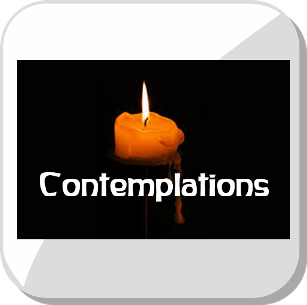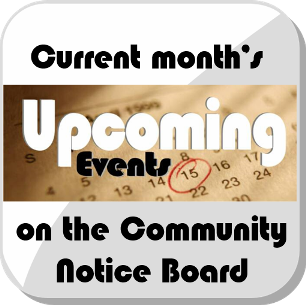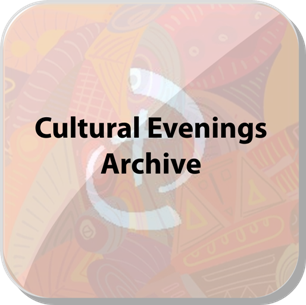|
The Decalogue presented by Rev. Michaël Merle reported by John-Peter Gernaat The decalogue comprises the Ten Utterances of YHWH (Yahweh of the Elohim) to Moses described in Exodes 20. Through the 10 days of Ascension a series of ten discussions were held, preceded on each day by a sermon introducing the topic, from 18 May to 27 May. The creation of the human being as described in Genesis is not the first creation of the human being. The human being had already experienced an existence on (maybe more accurate to say within) three previous incarnations of great cosmic cycles. However, the beginning described in Genesis, is the beginning of the earth incarnation where the human being would be the focus of the development for which the earth was created. This earth incarnation is the creative work of the Mighty Elohim, the Mighty Beings of Form, working on behalf of the Divine. When they created the human being as a being of form, they created the human being in the likeness of the Divine. This means that we can recognise the Divine present in every aspect of our being; there is a three-foldness to every aspect of the human being. The seven Mighty Elohim imagined the form of the earth and all that was to come into being on the earth and last of all placed in their creative imagination the form of the human being on the earth. Then YHWH of the Elohim was tasked with bringing this imagination into physical form (physical form, not yet material form). YHWH first created the form of the human being so that the human being could be present in the process of creation. YHWH then created all the plants and creatures of the world, and the human being could name each one, because in each the human being recognised something of themselves, an aspect of themselves. Then YHWH brought a state of sleep on the human being and separated the sides of the human being creating two forms of the human being who were a complete being just as the human being was complete before. When the human being awoke, Adam could not name Eve because she was “bone of my bone, flesh of my flesh”, a complete reflection of Adam in whom he could recognise every aspect of himself. In this creation we recognise another aspect of the Divine. The Divine has created in order that the creation be a complete reflection of the Divine in which the Divine can recognise Himself. We hear this spoken in our Advent Epistle where we hear that God’s becoming is held in our becoming. The Deed of Christ and the Sacrifice of Christ in this earth incarnation had been determined before the creation of this earth. This was that the “I-constitution” of the human being, which is a reflection of the “I” of Christ, would become incarnated into the very constitution of the human being. This would prepare the way for the evolution of the human being to becoming the tenth hierarchy of the angelic realms. Then the human being took into itself the Knowledge of the Tree of All Things prematurely and the plan for the Deed of Christ and the Sacrifice of Christ had to be adapted. YHWH was tasked with this plan. When YHWH recognised in Abram a new capacity in the human being, he knew that this new capacity could be harnessed to bring into being the human constitution into which the Christ could enter to fulfil the Deed of Christ and the Sacrifice of Christ. YHWH therefore separated Abram and his family from his tribe and let him journey to another country far from his home. There, in separation, YHWH could begin the task of changing the constitution of the family of Abram by encouraging his descendants to take into their very being the external conditions for living that align with the development towards the future human being. This separation included sheltering the Children of Israel behind the strong forces of Egypt until such a time that the religion of Egypt was coming to its rightful end and the continuation of the Children of Israel required an initiation into a new way of relating to the Divine through YHWH, to fulfil the plan with which YHWH had been charged. During this period of initiation (forty years in the desert) YHWH presented Moses with a complete picture of the future human being. This picture had the purpose of focusing the Children of Israel on the external conditions for living that they were to internalise. We know that the picture is complete because it was given in ten utterances – ten always represents completeness. These ten utterances of YHWH to Moses on the mountain were known to the Israelites as the עֲשֶׂרֶת הַדְּבָרִי (transliterated aséret ha-dvarím), literally Ten Words. When the scriptures were translated into Greek they became the δεκάλογος [dekálogos]. This was translated non-grammatically by the Romans into Latin as decalogos (grammatically it would be translated as verbum deca). When the Protestant Reformation translators of the Bible translated these statements they recognised that these were statements for the I-constitution to take command of the rest of the human constitution and they called them the Ten Commandments. It was not the original intention of the translators that these commandments should be turned into laws, i.e. you shall or else, but that they would stand as instructions to the I-constitution over the rest of the human constitution, warning that the rest of the human constitution is capable of making a mockery of the human being should the I-constitution not take charge. After all the Protestant Reformation is a product of the birth of the Consciousness Soul in the human being and it is the task of the Consciousness Soul to bring about the work intended for the incarnated I-constitution of transforming the lower bodies for the human being (the astral body, the etheric body and the physical body) into the new higher bodies of the human being (Spirit Self, Life Spirit and Spirit Human). The Ten Utterances are statements of fact that present a picture of the future human being for us as developing human beings to hold onto for our development. The Ten Utterances do not have clear demarcations and as a result there is a different ten in the original Hebrew to the ten listed in the early Christian period. This is because the Hebrews feel that the first utterance is a simple statement of the Divine and the second utterance is the respect of the image of the Divine. The early Christians felt that the two utterances were so intertwined that they should be read as the first utterance. On the other hand, the Hebrews read the utterance about the possessions, relationships and stewardship of another person as one utterance while the early Christians felt that the possessions of another should be separated from the relationships and stewardship. This becomes significant when we take the view of some rabbis and in particular the Kabbalistic view of the presentation of the utterances. In Exodus we read that Moses brought two tablets from the mountain. In Hebrew contractual law it would make sense that these tablets were an identical copy of each other. One tablet was for YHWH and the other for the Israelites. Proving that they were identical made them ‘legal’. In this case the first five utterances appear on one side of each tablet and the second five utterances on the reverse of the tablets. The Kabbalist view is that as the finger of YHWH was writing the first utterance the sixth utterance was appearing on the reverse side of the tablet. Therefore, there is a close relationship to utterance one and six, two and seven, three and eight, four and nine and five and ten. This relationship is evident when we read the Ten Utterances as the Hebrews understand them, but less so if we read them as the early Christians wrote them. The early Christian tradition lives on in the Catholic list of the 10 Commandments. In the Protestant reformation the reformers reverted to the Jewish list, creating a second list of the same 10 Commandments in Christian tradition. This will be explored as we proceed. In the ten discussions on the Decalogue Michaël presented the Revised King James translation of each statement, the English expression of the Hebrew used by the Jewish community today from the understanding that the Hebrew rabbis have of each statement, the interpretive translation of Rudolf Steiner from one of his lectures on the Decalogue, and his own interpretive translation based on his own work to understand these Utterances. First Utterance: King James (revised): I am the LORD your God, who brought you out of the land of Egypt, out of the house of bondage. You shall have no other gods before me. The Divine Word Fathers (Catholic) translation: I am Yahweh of the Elohim who brought you out of the land of Egypt, out of the house of slavery. Jewish: I am HaShem, your G-d, who brought you out of the land of Egypt, out of the house of bondage. HaShem (Hebrew: השם hšm, literally "the name"; often abbreviated to ה׳ [h′] is a title used in Judaism to refer to YHWH of the Elohim, the representative of God. Alternatively, the Jews refer to YHWH of the Elohim as Adonai (meaning Lord) when they read the scriptures aloud). Rudolf Steiner: I am the eternal divine Whom you experience in yourself. I led you out of the land of Egypt where you could not follow Me in you. Michaël: I am the originator and the ultimate fulfilment of the Mighty Strong Forming Force of the Divine in you. Second Utterance: King James (revised): You shall not make for yourself a graven image, or any likeness of anything that is in heaven above, or that is in the earth beneath or that is in the water under the earth; you shall not bow down to them of serve them; for I the Lord your God and a jealous God, visiting the iniquity of the fathers upon the children to the third and fourth generation of those who hate me, but showing steadfast love to thousands of those who love me and keep my commandments. Jewish: You shall not make or worship other gods Rudolf Steiner: Henceforth, you shall not put other gods above Me. You shall not recognise as higher gods those who show you an image of anything that appears above in the heavens, nor that works out of the earth, nor between heaven and earth. You shall not worship anything that is below the divine in yourself, for I am the eternal in you that works into your body and hence affects the coming generations. I am of divine nature working forth. If you do not recognise Me in you, I shall pass away as your divine nature in your children, grandchildren and great grandchildren, and their bodies will become waste. If you recognise Me in you, I shall live on as you to the thousandth generation, and the bodies of your people will prosper. Michaël: You shall have no other image of Me than the one of Me in you. Third Utterance: King James (revised): You shall not take the name of the LORD your God in vain; for the LORD will not hold him guiltless who takes his name in vain. Hebrew: Do not swear in HaShem’s name unnecessarily or falsely. Rudolf Steiner: You shall not speak in error of Me in you, for everything false about the “I” in you will corrupt your body. Michaël: You shall not speak falsely of Me in you but bear the truth of the presence of Me in you. Fourth Utterance: King James (revised): Remember the sabbath day, to keep it holy. Six days you shall labour, and do all your work; but the seventh day is a sabbath to the LORD your God; in it you shall not so any work, you, or your son, or your daughter, or your manservant, or your maidservant, or your cattle, or the sojourner who is within your gates; for the six in six days the LORD made the heaven and the earth, the sea, and all that is in them, and rested the seventh day; therefore the LORD blessed the sabbath day and hallowed it. Jewish: Honour and observe Shabbas. Rudolf Steiner: You shall distinguish workday from Sabbath in order that your existence may become an image of My existence. For what lives in you as “I” created the world in six days and lived within Himself on the seventh day. Thus, shall your doing and your son's doing and your daughter's doing and your servants' doing and your beasts' doing and the doing of whatever else is with you be turned for only six days toward the outer; on the seventh day, however, shall your gaze seek Me in you. Michaël: You shall distinguish the inner activity of Sabbath from the outer activity of the work week, so that you can reflect the image of my existence, in this rhythmic way. Fifth Utterance: King James (revised): Honour your father and your mother, that your days may be long in the land which the LORD your God gives you. Jewish: Honour (literally: carry the heavy burden) of your father and your mother. Rudolf Steiner: Continue to work in the ways of your Father and mother so that the possessions they have earned by the power I have developed in them will remain with you as your property. Michaël: You shall bear and carry the heavy inheritance of your father and mother and continue to work in that way that you continue to honour that which you have gained from all that has been, and build on that for the future. Sixth Utterance: King James (revised): You shall not kill. Jewish: The Hebrew word used is רָצַח (ratzach) which means illegal or intentional killing. It refers to unethical killing rather than killing in general which would be Harag - to kill, slay, murder, destroy, out of hand. If this is the utterance that appeared on the reverse of the tablet as the finger of God was writing the first word then, if the Divine is in you and in everyone else, the Divine in another should not be brought to an end unethically. Rudolf Steiner: Do not murder! Do not encroach upon the ego of another. Michaël: No putting to death that which must live. Seventh Utterance: King James (revised): You shall not commit adultery. Jewish: Do not dishonour marriage. Rudolf Steiner: Do not break marriage. Do not reach into the ego of another, which in turn is connected to another person, another ego. Do not stand in this way. Do not touch the property of another which he has acquired through the power of the I. Michaël: No dishonourable unfaithfulness in your relationships. (Do not break faith with the Divine, which is in you, with the Divine that is in another.) Eighth Utterance: King James (revised): You shall not steal. Jewish: The Hebrew word is better translated as kidnapping. Therefore, do not take possession of that which belongs to another. This is related to the third utterance in that the I should not seek to draw power from another source by taking from the I of another and thereby bringing falsehood into my “I”. Rudolf Steiner: In this commandment it is pointed out how the ego of another can be damaged, for we can intervene in the sphere of our fellow human being in the sacred circle of his ego not only with deeds and actions, but also with words and with thoughts and feelings. Thoughts and feelings are realities. Michaël: No encroaching on the life of another to take possession of them and what they have. Ninth Utterance: King James (revised): You shall not bear false witness against your neighbour. Jewish: This relates to the fourth utterance of keeping the Divine rhythm by seeing the capacity of reflection in another thereby seeing the Divine in another and not speaking anything but the witness of the Divine in the other. Thus: Do not give false witness. Rudolf Steiner: Do not disparage the worth of your fellow human being by speaking false of him. Michaël: No speaking falsely of the true Divine in the other. Tenth Utterance: King James (revised): You shall not covet your neighbour’s house; you shall not cover your neighbour’s wife, or his manservant, or his maidservant, or his ox, or his ass, or anything that is your neighbour’s. Jewish: This relates to the fifth utterance of bearing the burden of inheritance to work with it for the next generation. Therefore, one works with one’s own inheritance and not with that which belongs to another to bear and work with. Thus: Do not desire what belongs to someone else. Rudolf Steiner: Do not look with disfavour on what your fellow human being possesses as property. Do not look with disfavour on the wife, on the office of your fellow human being. Nor on the assistants and other beings through whom he finds his progress. Michaël: No unworthy desiring of a fellow human being’s capacities, relationships or stewardship.
0 Comments
Leave a Reply. |
Article Archives
December 2023
2022 - January to December
2021 - January to December 2020 - January to December 2019 - January to December 2018 - January to December 2017 - January to December 2016 - January to December 2015 - January to December 2014 - November & December 2013 - July to December 2013 - January to June 2012 - April to December Send us your photos of community events.
Articles (prefaced by month number)
All
|




 RSS Feed
RSS Feed